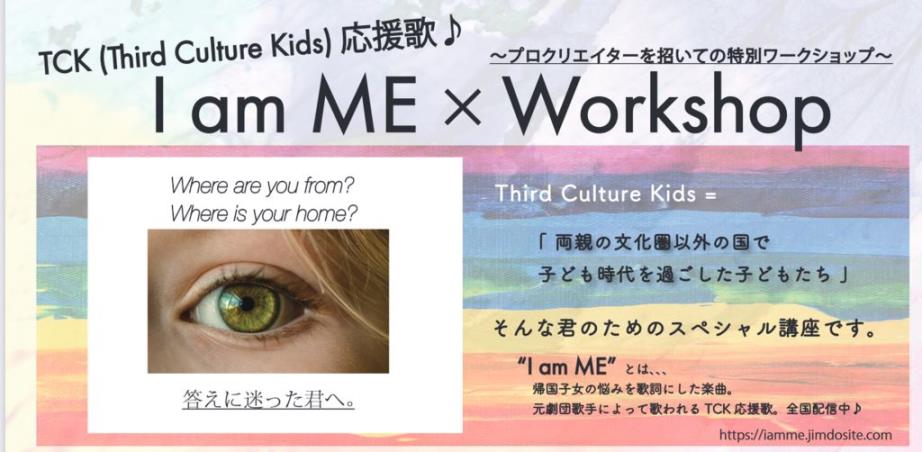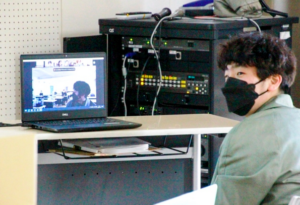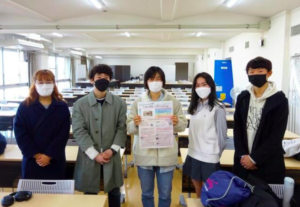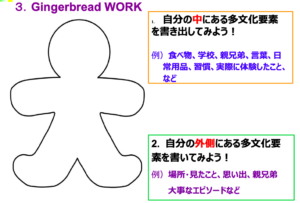JICUF Grantee Highlight: I am ME Workshop

A series of virtual workshops titled “I Am ME” was held over the course of two weeks beginning in late January.This series was designed to allow ICU High School students the opportunity to creatively express their experience of being a Third Culture Kid (TCK). The event was organized by ICU alumna Hiroko Nagata Bell, along with several collaborators. Ms. Bell was awarded a grant of ¥198,400 from JICUF in the fall of 2021.

At the beginning of the first session, Ms. Bell introduced the students to the concept of TCKs through song and lecture. Ms. Bell explains that, “learning the word ‘TCK’ can be as important to these individuals as learning their own pronouns. Knowing that there are so many TCKs all around the globe helps them identify with a much larger group of people who share the same experiences and values … despite the differences in locations.” From the second session, students began working on a creative project to narrate their experience as a TCK through writing lyrics, composing, singing, acting, and/or film making. Students were provided lectures on “How to Write Lyrics” and “Digital Storytelling”, as well as personalized feedback on their projects throughout development. Projects were performed on the last day of the workshop series.

12 students participated in the workshops. The aim of this project was to impart a sense of comfort to TCK students by teaching them about the common strengths and challenges that TCKs possess, speaking to the fact that they are not alone in their experiences. A full overview of the creative projects completed by students can be seen here.
We sat down with Ms. Hiroko Bell for a few questions about the project.
JICUF: Please tell us about the background and goals for your project.
Hiroko Bell: Throughout the pandemic, I read Third Culture Kids: Growing Up Among Worlds which became the basis for this project. Reading it was like scales falling from my eyes. Even being a kikoku-shijo, I had never heard of the phrase TCK. (Third Culture Kid) The way it clearly illustrated an academic topic that explained not only my own experience but the experience of children in all different countries really moved me.
By chance, I later had the opportunity to participate in the creation of an original song. I took the chance to write a motivational track for TCK, and the song “I am ME” was the result. After sending the song to a teacher at ICU High School, I learned that TCK is not used much in the school. Instead, the more traditional “kikoku-shijo” is used for students who return from abroad. Had I learned about TCK earlier, I might have been able to rid myself sooner of that weird feeling of “being different”. I thought it might do the same for high schoolers, and wanted to introduce them to the topic. The people singing with me on I am ME are all asking “Who am I?”. One member is hafu, another has a mother who is a TCK. Having a space to discuss this dilemma can be refreshing, which was the beginning of the workshop.
One goal of the workshop was to teach students, teachers, and parents about the concept of TCK. Although it is said that TCK have advantages in interpersonal observation, language ability, and an international mindset, they also tend to carry a general sense of loss. The experience of following your parents from environment to environment can leave children too busy adjusting to properly process the sorrow of losing what was familiar. I think that teaching them about the concept of TCK can allow us to support them more specifically. The workshop was meant to teach TCK about identity formation and to help them with the process.
JICUF: Are there differences in the experience of TCK throughout different generations? What parts of the TCK experience are consistent?
HB: One thing that remains consistent with TCK in any time period is the experience of moving between cultures and the effects that it has on them. The biggest difference between TCK of the past and present is that the parents of TCK no longer tend to be confined to specific professional fields. The work of researcher David C. Pollock, who pioneered this concept, focused on missionary and military families as the basis of TCK research. Now, the world has become sufficiently globalized that any type of family can include TCK.
Another big change for current TCK is communication. When I returned to Japan from America in middle school, letters were the only way I could communicate with my old friends. It wasn’t until college that I could use email. Now, people can communicate instantly with anybody around the world. The sense of separation used to be very strong, but now my friends are only a video-call away.
JICUF: What sort of activities were included in the workshop?
HB: During the lecture portions, students used a “Gingerbread Man diagram” to consider what is familiar and unfamiliar to them, allowing them a chance to reflect on the “Me” that makes up their personalities. Few students had done work like this before, so it was a little difficult in the beginning to get students started.

Before the actual workshop, we spoke with students and asked them about their interests and hobbies. We began the work of song-creation after we got a sense of their individual identities. I feel that creative work taps into a much deeper part of the personality that normal essay-writing can.



